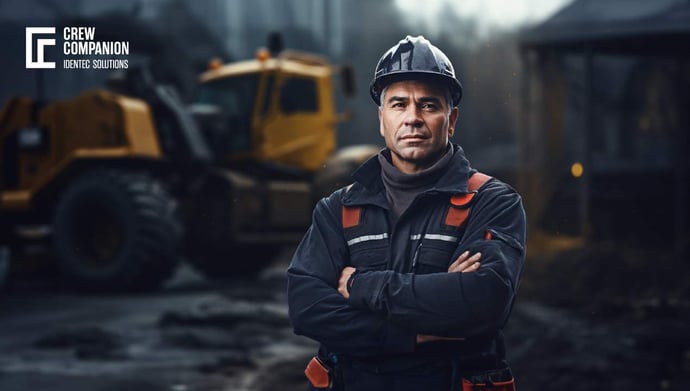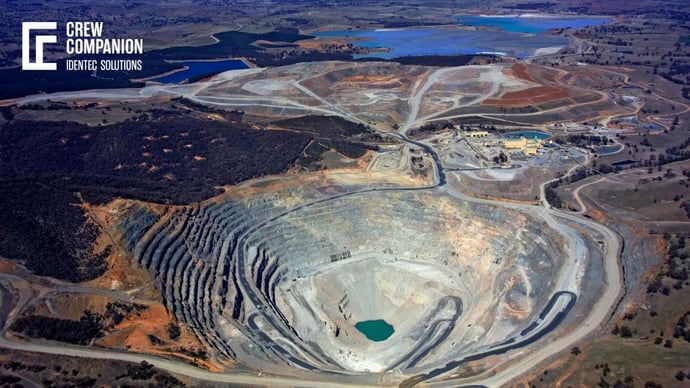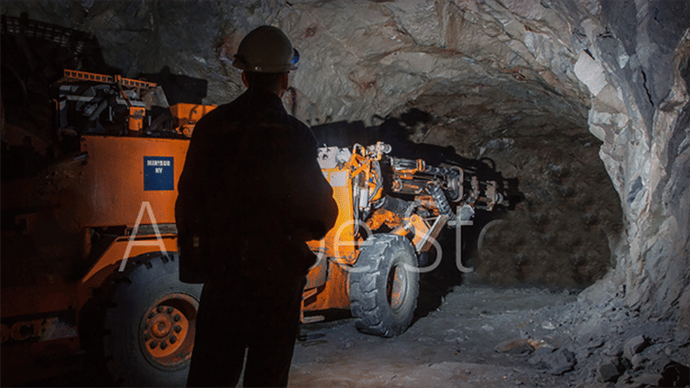Responsible Mining in Latin America
| Written by Yeudiel Valdivia
The mining sector is one of the most controversial industries in the sense that, at the same time as it is beneficial to society, it can be a threat to it. The mining industry is linked to a countries economy and natural resource activities. We cannot deny that to a large extent a country's economy is associated with its extractive industries.
Corporate Social Responsibility initiatives can encompass a wide range of activities, including environmental sustainability, community development, ethical labour practices, safe working conditions, philanthropy and transparency in business operations. Social responsibility in mining in Latin America is a complex and challenging issue, encompassing many aspects, but I am convinced that the concept of responsible mining is something the industry wants and needs.

No video selected
Select a video type in the sidebar.
Is RESPONSIBLE MINING Part of Corporate Social Responsibility?
The definition of Corporate Social Responsibility is very broad and has evolved over time.
Corporate Social Responsibility (CSR) is generally defined as a company's commitment to operating in an economically, socially, and environmentally sustainable manner while balancing the interests of different stakeholders. It involves integrating social and environmental concerns into business operations and stakeholder interactions beyond legal requirements, aiming to contribute positively to society and minimise negative impacts.
Although there is no specific definition of CSR for the mining industry, it is generally defined as a company's commitment to the environment and society and the benefits it brings to local communities, mainly on a voluntary basis.
CSR initiatives in Responsible Mining generate profitability
There have been discussions over time about whether CSR can generate economic benefits for mining companies. However, it should not be lost sight of the fact that CSR should also be driven by a number of considerations, such as the moral obligation to respect human rights, the welfare of society, and the protection of a company's economic activities.
Studies conducted by research centres in Europe examined the relationship between CSR performance and the economic growth of European mining companies and analysed data from different medium-sized and large mining companies between 2018 and 2021. The findings of these papers confirm that Corporate Social Responsibility positively affects the economic growth of companies, including their profitability and enterprise value. In addition, CSR indicators affecting each economic indicator were identified, with training, health, safety, and community development having the greatest impact.
These studies have investigated the relationship between CSR performance criteria and a number of indicators that assess companies' economic growth, such as ROA (return on assets), ROE (return on equity), net profit margin, and labour productivity. The results confirmed that there is a statistically significant association between economic growth and companies' CSR performance.
Mining companies continually seek to implement CSR initiatives as part of a Responsible Mining strategy to enhance their reputation and economic performance (see also the aftermath of the Chile Mine Disaster). Investors are more willing to invest in companies with sound management because they use their economic resources better to make more profit. Given the pervasiveness of socially responsible investment, sustainability has become a decisive factor from an investor's point of view. It should be considered before expanding or making new investments as part of their responsibility. Companies with objectives aligned with sustainable development may have greater investment opportunities and are considered safer investment choices due to their stronger CSR initiatives, which are seen as a competitive advantage in their market.
Mining as an essential activity for clean energy
Since the discovery of coal thousands of years ago, fossil fuels have played an important role in our human history, but as we move away from this energy source that contributes to global warming, demand is shifting towards certain minerals such as lithium, nickel and cobalt. These so-called transition energy minerals are essential components of many of today's clean energy technologies such as wind turbines and electric cars.
However, extracting and processing these transition minerals can devastate landscapes, damage biodiversity, emit greenhouse gases and lead to human rights abuses.
The market for energy transition minerals is potentially huge. With Responsible Mining and the right policies, the extraction of these minerals could usher in a new era of sustainable development, creating jobs and helping Latin American countries reduce poverty.
Countries and governments in the region need to build long-term strategies throughout the value chain that protect biodiversity, safeguard populations and landscapes, and prevent pollution. At the same time, strategies must ensure benefit-sharing throughout the value chain. This includes enabling disadvantaged and local communities to access the wealth derived from the minerals industry.
What defines Responsible Mining?
Social responsibility in mining in Latin America is a complex and challenging issue encompassing various aspects. The region has made progress in CSR by implementing international and national standards, creating community development programmes and adopting more environmentally friendly technologies. However, we still have some way to go. In order to continue moving towards Responsible Mining, the participation of different actors is essential:
Governments: Creating, strengthening and updating regulatory frameworks and institutions to ensure compliance with environmental and social standards, promoting transparency.
Mining companies: Making a genuine commitment to CSR and adopting best practices that maximise benefits for communities and the environment and minimise negative impacts (see also safety technologies for miner tracking).
Communities: Actively participating in decision-making processes related to mining.
Civil society organisations: Advocating for the rights of communities, monitoring environmental and social performance, and supporting the promotion of more sustainable practices.
Examples of Responsible Mining in the Region
There are important examples of mining companies in Latin America that have developed CSR programmes as part of Responsible Mining:
Yanacocha Mine in Peru (owned by Newmont)
Yanacocha, the largest gold mine in South America, is located in Cajamarca, Peru, about 800 kilometers northeast of Lima. Situated at an altitude of 3,500 to 4,100 meters, its operations span four main basins. The mine is fully owned by Newmont. Yanacocha produced its first gold ore bar on August 7, 1993. Between 1993 and 2012, the company invested over $1 billion in environmental and social responsibility initiatives and continues to support sustainable development in the region. Its commitment to responsible mining ensures long-term environmental protection and community engagement while maintaining efficient gold production.” (1)
Environmental management
- Efficient water use: Yanacocha has implemented a water recirculation system that allows it to significantly reduce its freshwater consumption.
- Solid Waste Management: The company has a solid waste management program that includes sorting, reusing and recycling materials.
- Air pollution prevention and control: The mine implements measures to control dust and greenhouse gas emissions, such as the use of filters and environmental monitoring systems.
- Restoration of disturbed areas: The company has developed a restoration plan for areas affected by its mining activity, aiming to rehabilitate ecosystems and recover biodiversity.
Social development
- Education and training programmes: It provides education and training programmes for local communities to strengthen their skills and improve their employment opportunities.
- Promotion of local entrepreneurship: The company supports local entrepreneurs through financing, technical assistance and training.
- Infrastructure for community development: Yanacocha has built and improved infrastructure in local communities, such as schools, health centres and roads.
- Cultural heritage preservation: The company works with local communities to preserve their cultural and archaeological heritage.
Health and safety
- Safe working conditions: The mine implements strict workplace safety standards to protect the health and well-being of its employees.
- Preventive health programmes: The company provides preventive health programmes for its employees and local communities.
- Quality medical care: Yanacocha has a modern hospital that provides quality medical care to its employees and local communities.
Transparency and accountability
- Dialogue with communities: Yanacocha maintains an open and transparent dialogue with local communities to address their concerns and work together to find solutions.
- Sustainability reporting: Since 2008, the company has taken on the challenge of submitting annual sustainability reports detailing its environmental, social and economic performance.
- Citizen engagement mechanisms: The company has implemented citizen engagement mechanisms to enable local communities to express their views and participate in decision-making.
Technological innovation:
- Research and development: Yanacocha invests in research and development to implement new technologies to reduce its environmental impact and improve its operational efficiency.
- Use of clean technologies: The company uses clean technologies to reduce its consumption of water, energy and greenhouse gas emissions.
- Digitisation of processes: Yanacocha has digitised its processes to improve efficiency and transparency.
Recognition of Yanacocha's good practices
Various international organisations have recognised the good practices implemented by Yanacocha. For example, the company has received the 'Sustainability Company of the Year' award from the Peruvian Institute of Social Responsibility (IPRS).
Fresnillo PLC in Mexico (a subsidiary of Industrias Peñoles)
Occupational safety
- Compliance with safety regulations.
- Elimination of fatal accidents.
- Compliance with life-saving rules and zero tolerance for deviations.
- Application of international best practices
- Ensure the availability of emergency response plans
- Implementation of safety practices with contractors and suppliers
Health
- Compliance with applicable health regulations
- Limit new cases of occupational diseases
- Identify and preventively manage health risks
- Provide preventive care and promote healthy lifestyles
- Working with authorities and supporting community health initiatives
Environment
- Reduction of carbon footprint through energy efficiency measures
- Biodiversity protection practices and restoration of areas affected by mining activity
- Responsible use of water and mechanisms to reduce water consumption
- Reporting and collaborating with authorities, communities and other stakeholders when environmental accidents occur
Community relations
- Promoting social and economic development
- Encourage community participation
- Support education, health and access to water
- Respect for human rights
- Consider Indigenous peoples' values and concerns
- Identify and manage social impacts
- Address community grievances in a fair and timely manner
- Assess community perceptions
- Prepare communities in advance of the closure of operations
Labour and human rights
- Promote fair labour practices
- Zero tolerance for discrimination, harassment and retaliation
- Respect for employees' right to freedom of expression and collective bargaining agreements
- Prohibit child and forced labour in its operations
- Encourage diversity
Recognition of Fresnillo PLC's good practices
The good practices implemented by Fresnillo PLC have been recognised by various international organisations. For example, the company has received the 'Sustainability Company of the Year' award from the Mexican Centre for Philanthropy (CEMEFI).
FAQS
Which bodies promote CSR in mining?
- United Nations Human Rights Council
- United Nations Environment Programme (UNEP)
- International Council on Mining and Metals
- Initiative for Responsible Mining Assurance (IRMA)
- Inter-American Dialogue on Mining, Social Responsibility and Development
Which countries have the largest reserves of energy transition minerals?
- Lithium: The 'Lithium Triangle' in South America, comprising Argentina, Bolivia and Chile, is home to the world's largest lithium reserves.
- Nickel: Indonesia, the Philippines and Australia are the main countries with nickel reserves. In Latin America, Brazil, Cuba, and the Dominican Republic are the countries with the largest reserves of this mineral.
- Cobalt: The Democratic Republic of Congo has the largest cobalt reserves in the world, followed by Australia, Cuba and the Philippines.
Do CSR initiatives drive economic growth in mining?
Several studies have shown that CSR initiatives have positive effects on the economic growth of mining companies and, specifically, on profitability and value for money.
TAKEAWAY
Social responsibility in mining in Latin America is a crucial issue to ensure sustainable and fair development. While there are significant challenges, there is also progress and examples of good practice. Collaboration between companies, governments, communities and civil society organisations is fundamental to move towards Responsible Mining that benefits all.
Research in other regions of the world affirms that Corporate Social Responsibility positively affects the economic growth of mining companies, including their profitability and enterprise value.
Sustainability has become a decisive factor from the investors' point of view. Companies with objectives aligned with sustainable development may have greater investment opportunities and are considered safer choices for investment due to their stronger CSR initiatives, which are seen as a competitive advantage.
Delve deeper into one of our core topics: Miner safety
Glossary
Solid waste management in mining - is the systematic handling, disposal, and treatment of waste materials generated during mining operations. This includes managing overburden, gangue, and mine tailings, which, if not properly controlled, can lead to serious environmental and safety concerns. Overburden consists of large amounts of soil and rock that must be removed to access mineral deposits. It is usually stored on-site, away from active mining areas, to prevent operational disruptions. Gangue refers to unwanted rock mixed with valuable minerals, which requires processing to separate the minerals. In many cases, multiple processing cycles are necessary to extract all usable minerals. Mine tailings are the finely crushed rock waste left after mineral extraction, often containing residual chemicals from processing. These tailings are transported and stored in specially designed-tailing ponds to prevent environmental contamination. Effective solid waste management reduces ecological damage, ensures compliance with regulations, and promotes sustainable mining practices. (2)
Sources:
(1) https://www.newmont.com/operations-and-projects/global-presence/south-america/yanacocha-peru/default.aspx
(2) https://www.sciencedirect.com/science/article/abs/pii/S030147972102301X
Note: This article was updated on the 7th of February 2025

Author
Yeudiel Valdivia, VP Sales Safe Mining
Yeudiel Valdivia holds a Master’s degree in Engineering (Telecommunications) and a Bachelor of Electrical and Electronic Engineering. He spent most of his professional career in sales and business development for industry segments including mining. Yeudiel is fascinated by the positive impact of technology in people’s life and how people can work safer and under better conditions, he is interested in how technology can transform businesses making them more efficient, agile, and productive and its potential for the economy growth in countries and regions. Yeudiel writes mainly about the digitalization of industries, driven by advancements in technology enabling new business models.



